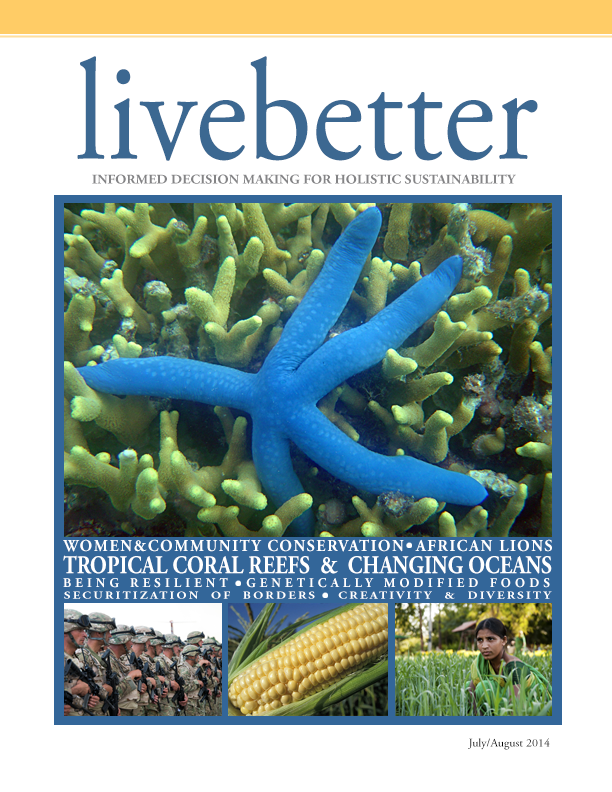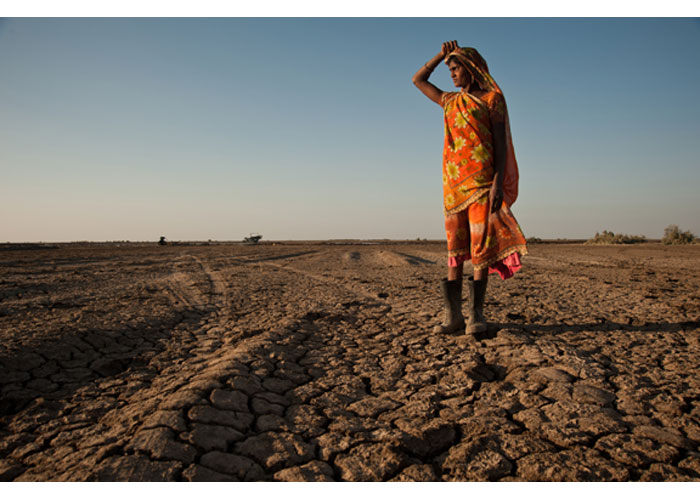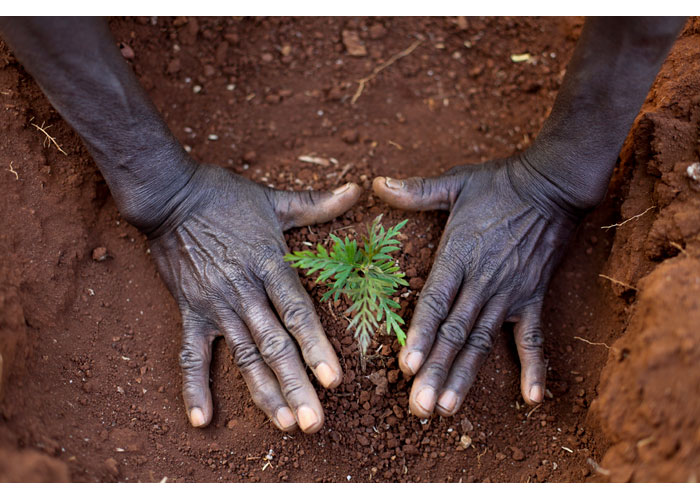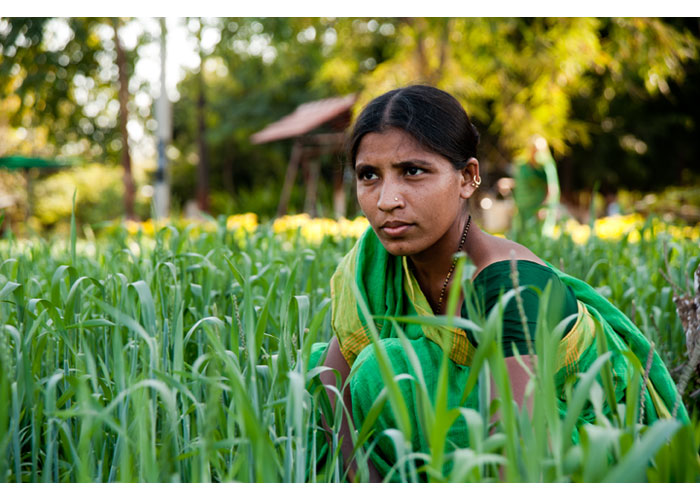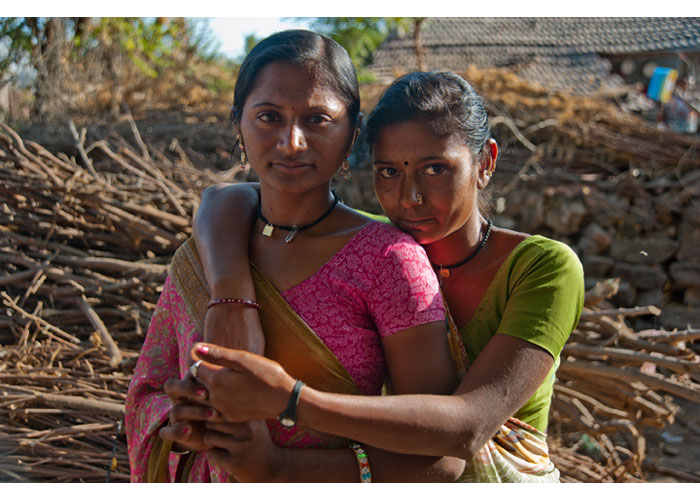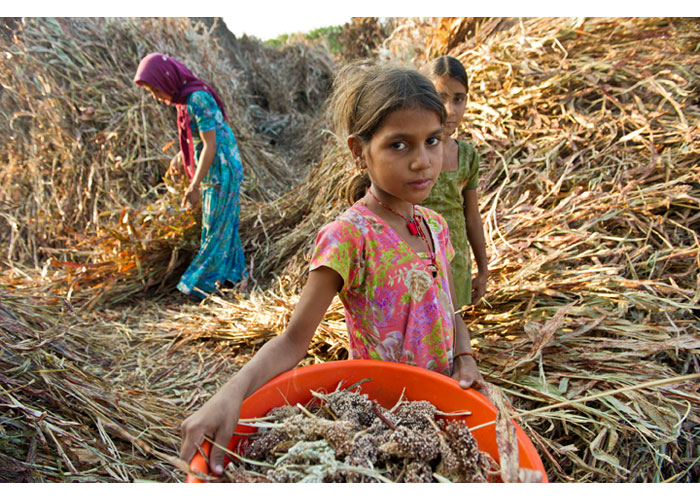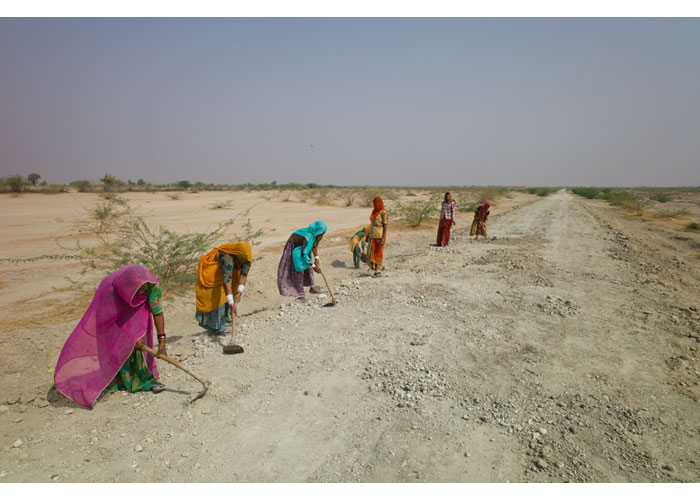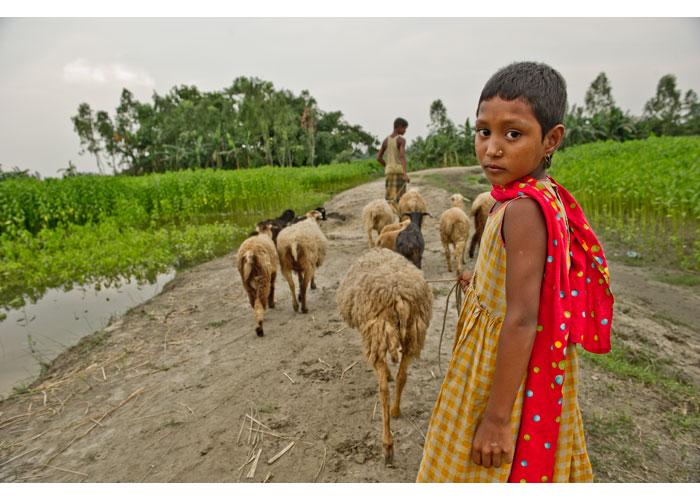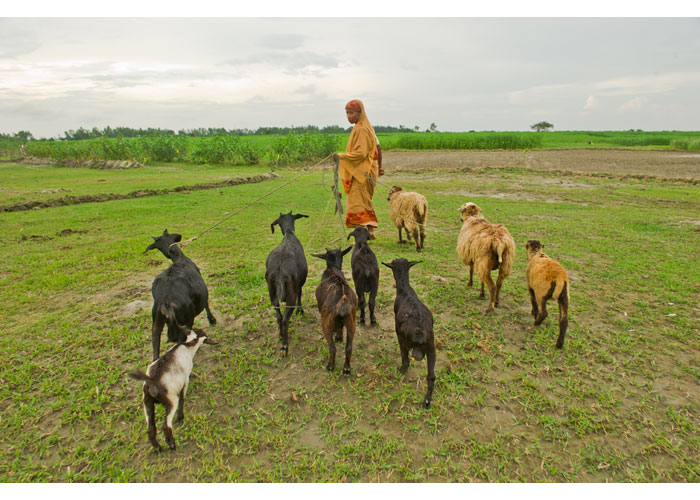Real-World Costs of Failing Sustainability
Global society has been talking about sustainability since 1987, but recent analyses show biodiversity extinction continues unabated, global climate change is accelerating and most of the United Nations’ Millennium Development Goals will not be met. Biodiversity is especially important because it provides environmental services that allow global society to enjoy moderate prices for its consumption. These free-of-charge services are worth approximately twice the gross global product, the sum of all gross national products. If global society paid for these services, today’s middle class would live closer to, or below, the poverty line.
Although this scenario is a projection, the now infamous business-as-usual status quo could create a high probability outcome because only a small proportion of the global community is concerned about such a consequence. Unfortunately, few non-governmental organizations (NGO’s) are actively trying to educate opinion makers and the public, and only a small minority of national governments, mostly those living at sea level, are even talking about change. The result, therefore, could be the collapse of global civilization as we know it. Since most people believe food comes from supermarkets, this potential collapse should be cause for significant concern. But, concern is seldom on television nor in the newspapers. Why? And, what does this have to do with sustainability and education?
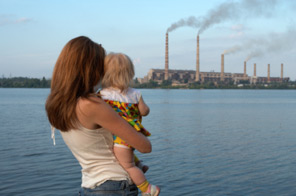
© iStockphoto.com/azgek
The term “sustainable development” was coined by the Brundtland Commission (1987) as “development that meets the needs of the present without compromising the ability of future generations to meet their own needs.” Seems simple enough, doesn’t it? In reality, however, it leaves too much unsaid because each person perceives different personal needs and seldom thinks about their grandchildren’s needs. The presumption is that those needs will be handled by their children.
Today there are hundreds of sustainability definitions with each one trying to capture the importance of the topic for different audiences. One good definition describes sustainability as “the state in which all humans, now and in the future, can live with a decent level of well-being within the limits of what Nature can offer to our species, and manage to absorb from our species continually, without causing irreparable damage to other forms of life.” Note the reference to “limits of Nature” – global biodiversity’s environmental services mentioned above. Moreover, note the prohibition of biodiversity extinction not only because it is intimately associated with these services, but also because it is God’s handiwork. Note finally that “well-being” should be decent for all. This doesn’t look much like today’s world, does it?
Humanity’s Ecological Footprint

© iStockphoto.com/davidk79
One weak point of both definitions is time frame. An appropriate time frame might be the average life span of a species, which is about one million years. However, human beings have been on Earth for only about 100,000 years, so civilization collapse has the potential to cut mankind off well before the midpoint of its allotted time.
The second definition does relate well to the concept of humanity’s ecological footprint – an idea that Mathis Wackernagel and William Rees developed in 1990 while at the University of British Columbia. Simply put, the ecological footprint measures how fast humans consume resources and generate waste compared to how fast Nature can absorb this waste and generate new resources. This relates to biodiverse land and sea area involved in resource production and waste degradation. Numerous organizations are now using this concept to educate audiences about sustainability principally because Nature offers and absorbs mostly free-of-charge today.

© iStockphoto.com/ricardoazoury
The Global Footprint Network1 estimates that global society now consumes 40 percent more than Nature can offer and absorb each year. The Living Planet Report2, prepared by the World Wide Fund for Nature (WWF), estimates that global society now requires 25 percent more productive land and sea area than is available on Earth. Although the numbers are slightly different because one is resources and the other is area, they both mean that global society is drawing down natural capital. In layman’s terms, mankind is consuming too much.
Just as a family can live on its savings for only a limited time, or a business on its borrowed resources, there are limits to how long humans can draw down natural capital without running out. This natural capital overuse is the explanation for biodiversity extinction and accelerating climate change, as well as many other measures of the overdrawn account, which together threaten global civilization. How often is this topic mentioned on television, presented in children’s homework or discussed on talk radio?
Limits of World Perception
One extremely inconvenient truth hidden within these overdrawn account estimates is that at least one billion people go to bed without food every day, and at least four billion people do not have a decent level of well-being. Anyone reading this is probably part of the two billion people with a decent or better level of well-being. Although it is human nature to avoid uncomfortable topics, this should make anyone ill-at-ease.

© iStockphoto.com/narvikk
The term “Homo sapiens” suggests that mankind is intelligent, but most humans rarely use this gift. George Bernard Shaw, the 1925 Nobel Prize winner for literature, once observed: “Few people think more than two or three times a year; I have made an international reputation for myself by thinking once or twice a week.” Unfortunately, instead of using their intelligence, most people are busy making a living, attempting to maintain or attain a decent standard of well-being or, more often, making due on too little. This limits a person’s perceptions of the world to his or her day-to-day activities, small group of co-workers and friends, and a limited set of leisure activities – presuming one is lucky enough to have any leisure. In a phrase, most people perceive that food comes from supermarkets rather than being an offering of Nature with the help of farmers and fishermen. Not surprising, most people seldom think of Nature at all.
It follows that global human population is much too large for Earth, especially if one believes that other species have a right to exist. A simple calculation based on the ecological footprint analysis suggests that Earth’s seven billion people would need five planets to have a decent standard of well-being presupposing the full sustainability definition mentioned above. Another simple calculation suggests that a reasonable number of humans on each of those five planets would be 1.4 billion, with this number assumed to be sustainable for the duration of our species’ natural life expectancy – one million years. Since mankind only has one planet, global population is more than five times what is sustainable. But, strangely, this subject is taboo although the United Nations recently sponsored a population conference to call attention to these numbers. Why is this subject taboo in schools, on television and radio, and in newspapers?
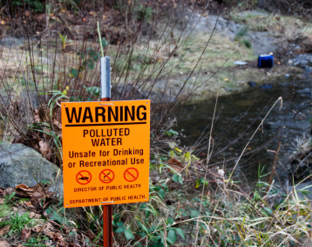
© iStockphoto.com/PhilAugustavo
Two interrelated reasons exist for such a taboo. Global society has decided that each person has inalienable rights as set forth in the Universal Declaration of Human Rights, and many national governments claim to defend these regardless of social and economic inequality. One of these rights is to form a family with the parents deciding how many children they should have. When parents are well-off, they tend to have one or two children, which means that each couple replaces itself in the next generation. When parents are poor they tend toward a larger family, which guarantees a greater contribution to family income, as well as care for incapacitated parents. The bottom line is that the Earth’s population growth is determined by people without a decent level of well-being. And because most people are unaware that today’s global population is unsustainable, there is no pressure to think about such an uncomfortable topic.
The Price of Excess Consumption
Capitalism – global society’s preferred economic system – is the second reason for mankind’s unsustainable growth. Unfortunately, this particular system of goods and services exchange is based on growth and accumulation, the more the better. Families attempt to accumulate enough for their own well-being, as well as for keeping up with the Joneses, and then the Gateses, if possible. This mentality of excess helps explain why so many people do not have a decent level of well-being. The calculation is simple; if the gross global product were divided by global population all would have a decent level. Needless to say, competitive accumulation leads to excess consumption. And, it is not a satisfying measure of well-being.
In addition, interaction between birth rate and consumption becomes an exponential factor for capitalist countries because their economic viability is affected when birthrates drop below two per couple. This explains why Japanese and some European governments are encouraging families to have more children. Note that neither birth rate nor consumption practices in any country recognize the importance of Nature. Some thinkers suggest a Universal Declaration of the Rights of Nature to serve as a counterpart to the Declaration of Human Rights. Others offer solutions for transforming capitalism to incorporate the true cost of ecological services without breaking the system. Still others support a move from a growth paradigm to a steady-state paradigm. Thus far, governments that support capitalism have decided against any such options.
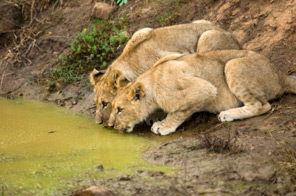
© iStockphoto.com/millsrymer
Decisions about the future are made by all Earth’s citizens, but different actors have different weights, especially national governments. Since all governments have planning agencies, it is proper to ask why they have not recommended and/or taken appropriate action. Thirty-three years ago, then-President Jimmy Carter identified some of the trends mentioned above and asked US society to reduce its consumption in order to promote what is now termed “sustainability.” Is it possible that his lost re-election bid created a taboo within US politics? Clearly, most major politicians prefer not to talk about this today, even though the issues and outcomes are potentially devastating. This alleged taboo may extend to leaders of all democratic governments worldwide, given their reluctance to address this subject in international forums.
If the major actors are silent, it is up to everyday people to act. This is where education for sustainability comes in, as it is the best way to change how the majority think about their current and future lifestyle, thus avoiding global civilization collapse. Many people think of education as an activity pursued in a classroom, but in reality it is an activity each person pursues continually, whether consciously or not. The major education task of our lifetime is to encourage and/or to teach each person to be content with a decent level of well-being rather than encouraging excess consumption. The development of personal or human capital is an alternative to material consumption, tends to be more personally satisfying and contributes to a healthier lifestyle. In addition, the more satisfied people are with a decent level of well-being, the more likely they are to support efforts to reduce workloads and create jobs for unemployed or underemployed workers in order to support all people’s right to the same level of well-being.
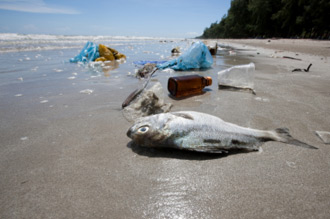
© iStockphoto.com/enviromantic
The task before us is enormous and urgent. Climate scientists believe that Earth is approaching a tipping point where change will accelerate dramatically and take mankind by surprise – certainly with unpleasant results. Biodiversity scientists also believe that ecosystems have tipping points when a critical number of species is lost, which will profoundly affect the environmental services Nature provides today. Whether scientists are 100 percent correct or not is irrelevant because Earth and its inhabitants are already experiencing negative outcomes with profound impacts. Educating seven billion people about the full implications of sustainability on a small planet within the next few decades is a daunting task, but it will be the major test of our intelligence and will power. And, it will decide whether “Homo sapiens” really is the correct name for our species.










